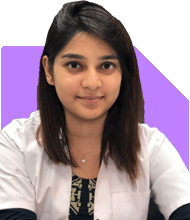Ramalingam Kalirajan |9854 Answers |Ask -Follow
Mutual Funds, Financial Planning Expert - Answered on May 03, 2024
He has an MBA in finance from the University of Madras and is a certified financial planner.
He is the director and chief financial planner at Holistic Investment, a Chennai-based firm that offers financial planning and wealth management advice.... more

I am 41 year old. I have 1 cr in mutual fund. It’s been 7 years I started doing sip with 50000. Which I have increased With time now I have sip of 80000 per month. I need to know how much will have when I reach age 50. In my account
Magnitude of Investment:
Your commitment to growth shines through as you reflect on your journey. Starting with a SIP of Rs 50,000 per month and gradually increasing it to Rs 80,000 per month showcases your dedication to nurturing your financial future. Each increment, no matter how small, represents a step towards building a solid foundation for your later years.
The Power of Compound Interest:
As the years pass, the magic of compound interest works silently in the background, multiplying your investments manifold. With each SIP, you're not just investing money; you're investing in your dreams, your aspirations, and your future. The power of compounding rewards patience and consistency, amplifying the impact of your contributions over time.
Envisioning the Future:
As you cast your gaze towards the horizon, you can't help but wonder: what lies ahead? At age 50, where will your financial journey have led you? Will you find yourself basking in the glow of a well-nurtured nest egg, ready to embark on new adventures and pursue passions long deferred?
The Path Forward:
As a Certified Financial Planner, I invite you to envision your future with clarity and purpose. While I cannot predict the exact value of your investments at age 50 without specific calculations, I can offer guidance on how to nurture and safeguard your wealth as you continue along your journey.
Embracing Uncertainty:
Life is a tapestry woven with threads of uncertainty and possibility. While we cannot control every twist and turn along the way, we can arm ourselves with the tools and knowledge needed to navigate the unknown with confidence. As you journey towards age 50, remember that the true measure of wealth lies not just in monetary value but in the richness of experiences and the depth of relationships.
Conclusion:
As you stand at the crossroads of past and future, take a moment to appreciate how far you've come. Your journey is a testament to your resilience, your determination, and your unwavering commitment to financial well-being. As you continue along your path, may you find solace in the journey itself, knowing that every step forward brings you closer to the life you envision for yourself and your loved ones.
You may like to see similar questions and answers below
Jinal Mehta |103 Answers |Ask -Follow
Financial Planner - Answered on Mar 05, 2024
Ramalingam Kalirajan |9854 Answers |Ask -Follow
Mutual Funds, Financial Planning Expert - Answered on May 02, 2024
Ramalingam Kalirajan |9854 Answers |Ask -Follow
Mutual Funds, Financial Planning Expert - Answered on May 09, 2024
Ramalingam Kalirajan |9854 Answers |Ask -Follow
Mutual Funds, Financial Planning Expert - Answered on May 18, 2024
Ramalingam Kalirajan |9854 Answers |Ask -Follow
Mutual Funds, Financial Planning Expert - Answered on Jun 07, 2024
Rebecca Pinto |112 Answers |Ask -Follow
Physiotherapist, Nutritionist - Answered on Jul 27, 2025
Rebecca Pinto |112 Answers |Ask -Follow
Physiotherapist, Nutritionist - Answered on Jul 27, 2025
Rebecca Pinto |112 Answers |Ask -Follow
Physiotherapist, Nutritionist - Answered on Jul 27, 2025
Rebecca Pinto |112 Answers |Ask -Follow
Physiotherapist, Nutritionist - Answered on Jul 27, 2025
Rebecca Pinto |112 Answers |Ask -Follow
Physiotherapist, Nutritionist - Answered on Jul 27, 2025
Nayagam P P |9467 Answers |Ask -Follow
Career Counsellor - Answered on Jul 27, 2025
Nayagam P P |9467 Answers |Ask -Follow
Career Counsellor - Answered on Jul 27, 2025
Nayagam P P |9467 Answers |Ask -Follow
Career Counsellor - Answered on Jul 27, 2025
Nayagam P P |9467 Answers |Ask -Follow
Career Counsellor - Answered on Jul 27, 2025
Nayagam P P |9467 Answers |Ask -Follow
Career Counsellor - Answered on Jul 27, 2025

























